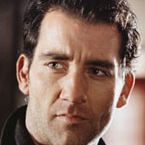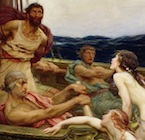RFalvo69
Posts: 1380
Joined: 7/11/2013
From: Lamezia Terme (Italy)
Status: offline

|
quote:
ORIGINAL: bomccarthy
quote:
ORIGINAL: RFalvo69
quote:
ORIGINAL: bomccarthy
quote:
ORIGINAL: RFalvo69
quote:
ORIGINAL: gamer78
I think it is less about the times we live in more about which country produce these films according to their cultural& ethnic audiance.
https://www.youtube.com/watch?v=6r-fXRHRnVg
"That’s How The Witcher Characters Should Really Look Like |🍿 Ossa Movies"
Witcher books are Polish origin but characters race and hair colour more likely we see in Netflix episodes more like an American cultural characters. It is natural.
Dune was written by Frank Herbert, who was American, but they just had to race&gender&age swap Liet-Kynes - a white old man with dark complexion (like a Greek or a Sicilian) in the book. Of course the real point of contention about the book, i.e. the problematic use of the trope of the "White Saviour" - something debated about since the book was published in 1965 - isn't touched here. 
Okay .... This is getting a little ridiculous, complaining about switching the gender/race identity of a character in a science fiction work. A film based on a novel is a creative interpretation of the story - some elements are changed. Stephen King had no problem with the most recent film version of Pet Sematary, where the fates of the two children in the story were swapped; he did have a problem with Stanley Kubrick replacing the entire underlying theme of The Shining. Having a young Black female actor play a character whose race and gender is not vital to the story (set on a planet far in the future) does not seem to be a reason for old White men to start staring dejectedly at the reflection in their soup.
I have no problem with changing the source material - if done for a reason. Kubrick did it all the times but the results were not masterpieces by chance. "Barry Lyndon" - my favourite Kubrick movie - starts as a picaresque novel written in first person by someone who hypocritically blames the world for his misfortunes. The movie is a drama told in third person; and yet the satirical undertones are all there and Barry remains the main actor of his own downfall. Maybe Kubrick knew that he had already used the novel's approach in "A Clockwork Orange", but you can easily see the logic underneath the changes. Regarding "The Shining", it is known that Kubrick didn't really like the novel. What he liked were the building blocks and he used them to do his own very successful tale.
But the point is that Kubrick and others worked hard to bring their visions on the screen and all this work is there to be seen - because it is there for a reason. In "Foundation" you race&gender swap Gaal Dornick and Salvor Hardin... Why? Maybe you want to modernise the tale by including topics that are relevant today. After all "Foundation" had always been about politics and the evolution of societies. But this is not what happens here. Dornic is mostly used to show a young black female mathematician (who, we are already shown, is almost better than Hari Seldon just like that) to patronise a group of older scientists who are trying to decide "what to save of mathematics" (???) by reminding them that all mathematics is important. I mean... For real? This was written and approved?
Then we have Salvor Hardin, who has been gender&race&age&job&mind swapped. When Anacreon menaces the Foundation we are shown that she is the only one looking for weapons. What? Hardin's motto, most famously, was "Violence is the last refuge of the incompetent". Hardin knew very well that a scientific foundation could not hope to survive the belligerent planets surrounding it by using violence. The beauty and undying relevance of "Bridle & Saddle" (which is the title of the original tale) is how Hardin understands how science is the key in that crisis - and how things at the end play out in a surprising but logical way. Here... dunno. Maybe she will wise up. After all she is a black woman, so, in this kind of production, gifted with superintelligence by default (we already saw her discovering things she couldn't possibly know, over and over, thanks to "hunches" - which breaks the whole "Foundation" bedrock: no character has mental powers...)
I have nothing against movies who present relevant topics in a honest way. Among the movies that I liked the most in the last few years I can cite "Moonlight", "Tangerine" (and, by the same director, "The Florida Project"), "The Dallas Buyers Club", "Hidden Figures", "Get Out", "His House"... (the last two using horror in a strongly symbolic way). My youngest daughter (whose informal surname is "La Pasionaria") suggested me to check out "Transamerica" and "The Normal Heart", and both were wonderful.
Here? "Let's show that we are relevant by putting on screen how many women and people of color as it is humanly possible - the reason why the character was written in a certain way be damned. Also, let's make them the best in everything and everybody else a lesser stupid, so we can then parade around and show how socially conscious we are! " This is not "being socially conscious": it is being lazy - and hypocrites.
Like a friend of mine said after "Dune", should they remake 'Training Day' today, it would be Denzel Washington's character the white one, and Ethan Hawke's the black cop.
You seem to be mixing up stories where race is the essential theme and stories where it is incidental. I can't comment on Foundation, having never read the book(s) or watched the show. I did read all of the Dune books, albeit almost 40 years ago, and don't recall 20th Century race definitions as a theme.
The tone of many comments in this thread really exposes the irrational fear of White men being replaced or reduced in status, whether onscreen or in the workplace.
Quite simply, no. Unless you mean "the fear to be replaced arbitrarily.
Why Gaal Dornick, Salvor Hardin and even Demerzel (the latter a serious narrative mistake, BTW) were either gender or race&gender swapped in Foundation? Why is Hardin a black female warrior when his whole point in the books is to win without violence?
It is a serious question - which has no positive answers plot-wise and, in at least two places, breaks the narrative structure of the plot.
Why is Kyet-Lines race&gender&race swapped in "Dune"?
If the reason is "to reach a specific quota", then I maintain that it is sheer hypocrisy. Like Chris Stuckmann said in one of his YouTube reviews "It is putting arbitrary characters on screen to have people on social media liking the movie without giving any effort to address the real implications of that race and gender. It is a lot of suits behind a desk who don't give a s**t about the real message: they only want good press."
This is why I don't "mix up stories where race is the essential theme and stories where it is incidental". I simply compare stories - and a lot of them are genre stories, no need for high drama - where the writers and directors decide that, yes, portraying certain races and genders is important. And they work hard on it, even in movies like "His House" who are wonderful horrors even before start considering the further implications brought by the characters.
quote:
I admit that as a professional writer in a Fortune 500-sized consulting firm, I work in a world that prizes diversity and so rarely sees commentary like that displayed here.
Diversity for diversity sake?
quote:
Reading some of the recently locked threads in this forum, I gather that this type of discussion is something that Slitherine is still working through.
If with this you mean the locking of the "Australian Beauties" thread, I wrote a personal e-mail to Erik detailing why, IMHO, it was a very, very bad decision. I detailed my motivations but at the end this remains a private forum, so now these are the rules.
< Message edited by RFalvo69 -- 10/8/2021 1:23:18 AM >
_____________________________
"Yes darling, I served in the Navy for eight years. I was a cook..."
"Oh dad... so you were a God-damned cook?"
(My 10 years old daughter after watching "The Hunt for Red October")
|
 Printable Version
Printable Version






















 New Messages
New Messages No New Messages
No New Messages Hot Topic w/ New Messages
Hot Topic w/ New Messages Hot Topic w/o New Messages
Hot Topic w/o New Messages Locked w/ New Messages
Locked w/ New Messages Locked w/o New Messages
Locked w/o New Messages Post New Thread
Post New Thread